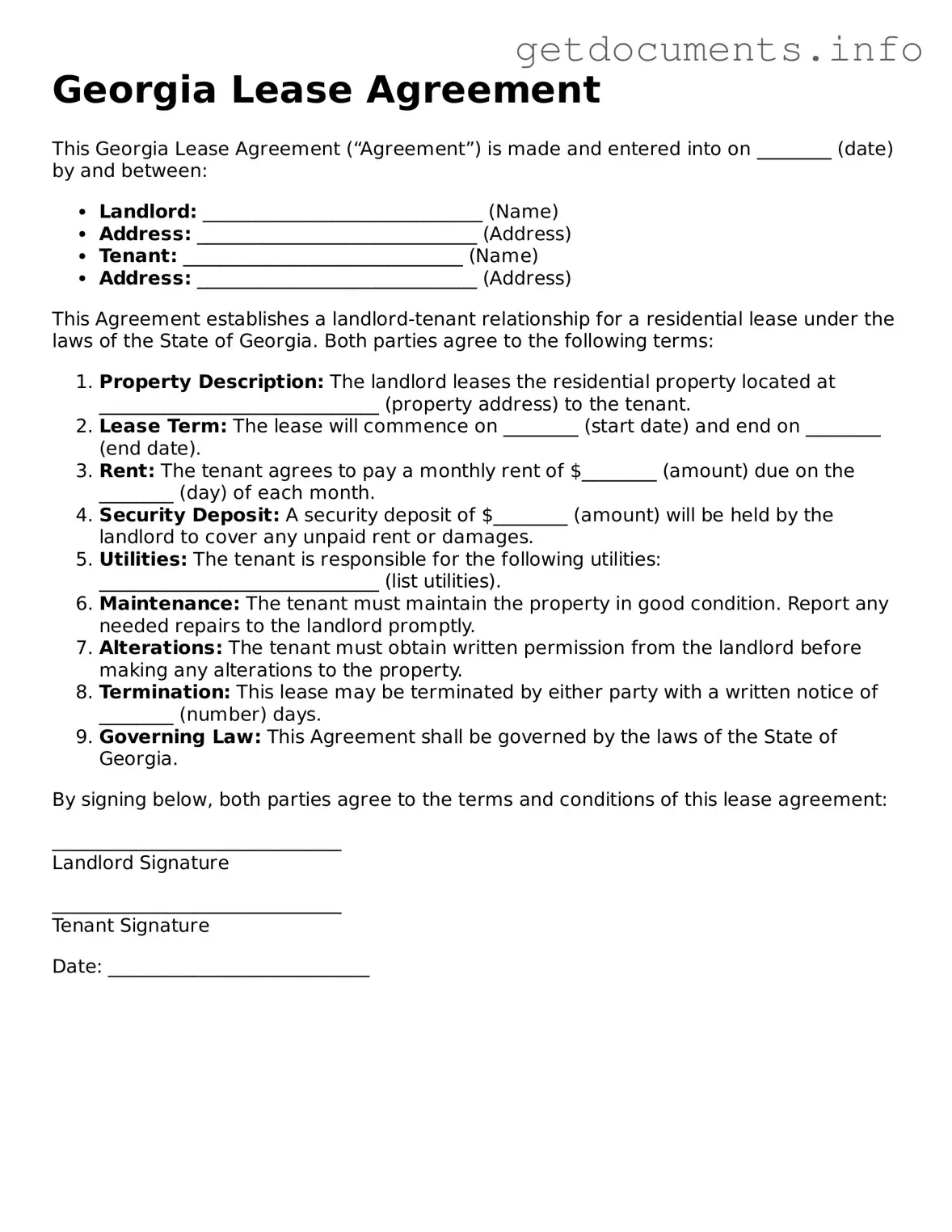Free Lease Agreement Template for Georgia
A Georgia Lease Agreement is a legally binding contract between a landlord and a tenant, outlining the terms of rental for a residential property. This document specifies the rights and responsibilities of both parties, ensuring a clear understanding of the rental arrangement. To get started on your lease agreement, click the button below to fill out the form.
Access Lease Agreement Editor

Free Lease Agreement Template for Georgia
Access Lease Agreement Editor
Got places to be? Complete the form fast
Fill out Lease Agreement online and avoid printing or scanning.
Access Lease Agreement Editor
or
⇩ PDF File
